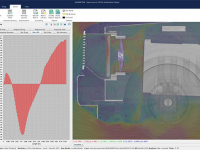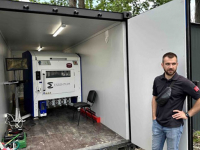
June 1, 2021
Outdoor thermal comfort assessments are increasingly used in the design of buildings and cities. Traditionally, evaluating the wind component of the Universal Thermal Comfort Index (UTCI) is dependent on on-premise CFD software that takes days or weeks to simulate.
This white paper describes how simulation on the cloud, using Graphic Processor Unit (GPU) accelerated physics is a leap forward in evaluating outdoor comfort and heat island reduction strategies for architects and engineers.
An Urban heat island (UHI) is the adverse effect on outdoor thermal comfort caused by warmer temperatures observed in urban spaces. Thermal comfort is a concept most often applied to the indoor environment. Many types of buildings will have their thermal comfort calculated under various climatic and occupancy conditions during the design stage and, more increasingly, measured during a building’s operation.
The concept of thermal comfort, however, is increasingly applied to the outdoor environment. Traditionally, pedestrian wind comfort and safety have been the dominant metrics for evaluating the suitability of outdoor spaces for people.
Fill out the information below to download the resource.
Latest News







